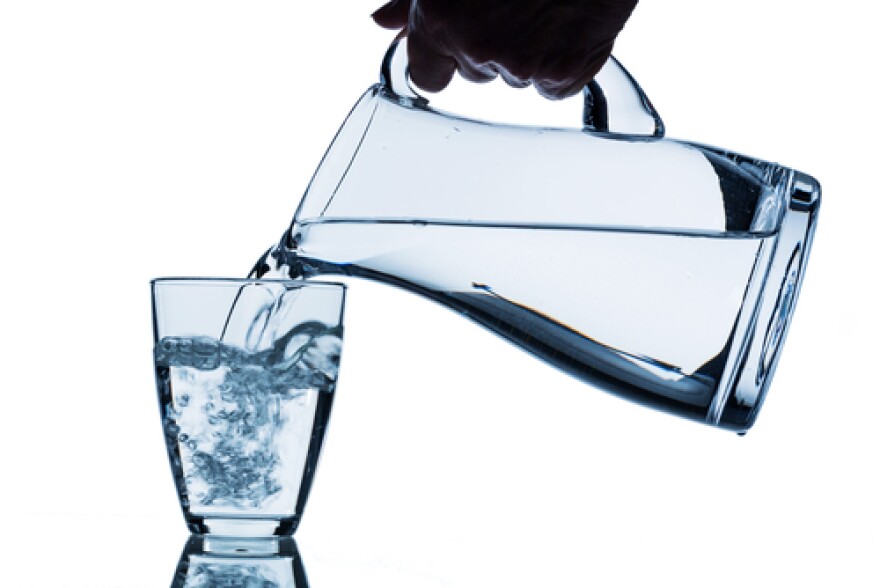Dehydration happens when your body doesn’t have enough water to replace what’s lost during the day. You might associate that more with activity and heat. But Dr. Alexander Eastman, Interim Trauma Medical Director at Parkland Hospital, explains in this week’s installment of Vital Signs how dehydration can be a serious problem in winter.
Causes, Symptoms and Treatment of Dehydration:
The Mayo Clinic says dehydration occurs when you lose more fluid than you take in, and your body doesn’t have enough water and other fluids to carry out its normal functions. If you don’t replace lost fluids, you may get dehydrated.
Common causes of dehydration include intense diarrhea, vomiting, fever or excessive sweating. Not drinking enough water during hot weather or exercise also may cause dehydration. Anyone may become dehydrated, but young children, older adults and people with chronic illnesses are most at risk.
You can usually reverse mild to moderate dehydration by drinking more fluids, but severe dehydration needs immediate medical treatment. The safest approach is prevention of dehydration. Monitor your fluid loss during hot weather, illness or exercise, and drink enough liquids to replace what you lose.
Other dehydration causes include:
- Diarrhea, vomiting.
- Fever.
- Excessive sweating.
- Increased urination.
Mild to moderate dehydration is likely to cause:
- Dry, sticky mouth
- Sleepiness or tiredness — children are likely to be less active than usual
- Thirst
- Decreased urine output — no wet diapers for three hours for infants and eight hours or more without urination for older children and teens
- Few or no tears when crying
- Dry skin
- Headache
- Constipation
- Dizziness or lightheadedness
Severe dehydration, a medical emergency, can cause:
- Extreme thirst
- Extreme fussiness or sleepiness in infants and children; irritability and confusion in adults
- Very dry mouth, skin and mucous membranes
- Lack of sweating
- Little or no urination — any urine that is produced will be dark yellow or amber
- Sunken eyes
- Shriveled and dry skin that lacks elasticity and doesn’t “bounce back” when pinched into a fold
- In infants, sunken fontanels — the soft spots on the top of a baby’s head
- Low blood pressure
- Rapid heartbeat
- Rapid breathing
- No tears when crying
- Fever
- In the most serious cases, delirium or unconsciousness
Treatment
In sick children
Use an oral rehydration solution. Unless your doctor advises otherwise, use an oral rehydration solution such as Pedialyte for infants and children who have diarrhea, vomiting or fever. These solutions contain water and salts in specific proportions to replenish both fluids and electrolytes. They’re also designed for easier digestion.
Continue to breast-feed. Don’t stop breast-feeding when your baby is sick, but offer your baby an oral rehydration solution in a bottle as well. If you give your baby formula, try switching to one that’s lactose-free until diarrhea improves — lactose can be difficult to digest during diarrhea, making diarrhea worse. Never dilute formula more than the instructions advise. Your doctor also may suggest substituting an oral rehydration solution for the formula for 12 to 24 hours.
Avoid certain foods and drinks. The best liquid for a sick child is an oral rehydration solution — plain water doesn’t provide essential electrolytes, and although sports drinks replenish electrolytes, they replace those lost through sweating, not through diarrhea or vomiting. Avoid giving your child milk, sodas, caffeinated beverages, fruit juices or gelatins, which don’t relieve dehydration and which may make symptoms worse.
In sick adults:
Most adults with mild to moderate dehydration from diarrhea, vomiting or fever can improve their condition by drinking more water. Water is best because other liquids, such as fruit juices, carbonated beverages or coffee, can make diarrhea worse.
In athletes of all ages:
For exercise-related dehydration, cool water is your best bet. Sports drinks containing electrolytes and a carbohydrate solution also may be helpful. There’s no need for salt tablets — too much salt can lead to hypernatremic dehydration, a condition in which your body not only is short of water but also carries an excess of sodium.
Treating severe dehydration:
Children and adults who are severely dehydrated should be treated by emergency personnel arriving in an ambulance or in a hospital emergency room, where they can receive salts and fluids through a vein (intravenously) rather than by mouth. Intravenous hydration provides the body with water and essential nutrients much more quickly than oral solutions do — something that’s essential in life-threatening situations.





